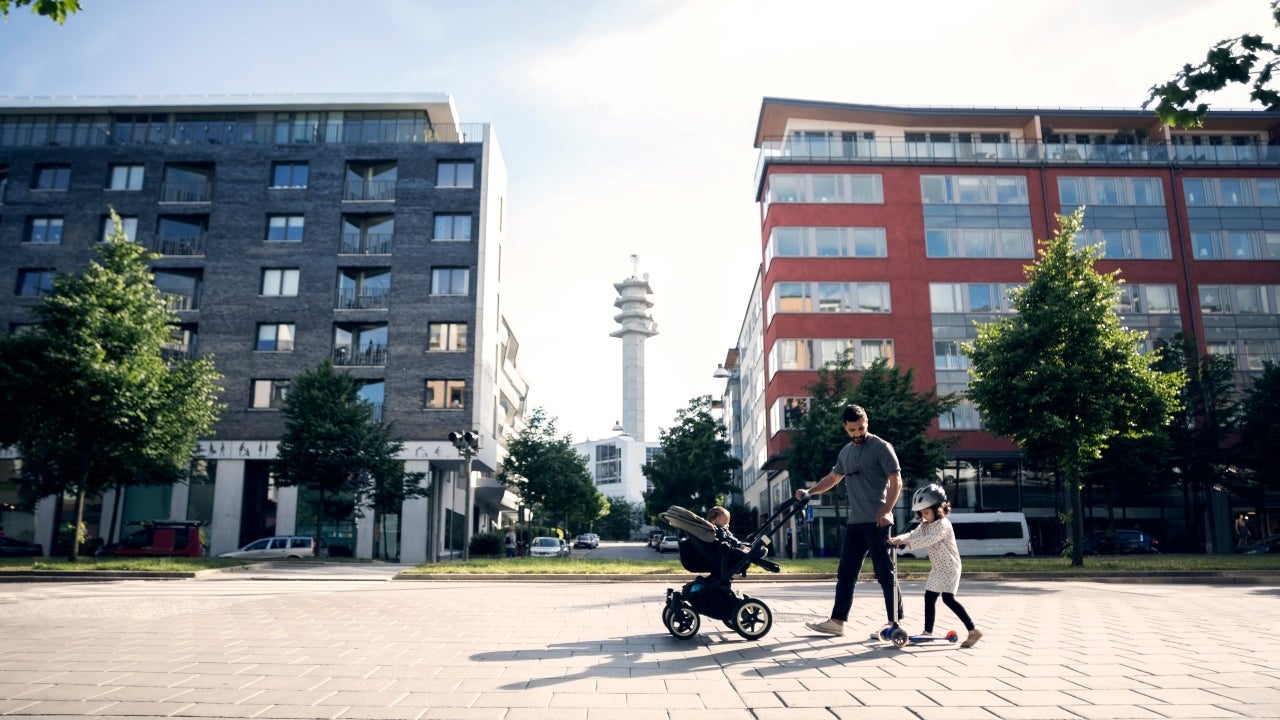Lease buyout: Is it right for me in 2023?

The decision to lease over buy your next vehicle comes down to a few simple questions about how much you’re willing to pay and how long you intend to hold onto the vehicle. But the choice to hold onto your leased vehicle through a lease buyout is a whole other set of considerations that also require a look at macroeconomic factors.
TransUnion reported a 14 percent decrease in the auto lease market from January 2020 to July 2022. This decrease reveals many drivers’ choice to step away from leasing altogether or hold onto their current leased vehicle via a lease buyout. If you are currently leasing a vehicle you love, buying it out could save you money and time.
The 2023 leasing market
The last year brought chaos throughout the vehicle market. Lingering supply chain issues made for expensive out-the-door prices, and high interest rates prevailed. The rates left drivers spending up to $700 per month for a new car and upwards of $500 to finance used, according to Experian.
Drivers leasing were unfortunately not immune to high monthly payments, as leased cars come out of the used car market. They averaged $661 in December 2022, according to Cox Automotive. That’s a 33 percent increase compared to March 2020. With those high costs, some drivers stepped away from the leasing process.
With fewer vehicles available on dealership lots, down 57 percent compared to 2019, many drivers have instead decided to hold onto their leased vehicles instead of entering the competitive new car market.
And “while the inventory situation has improved modestly in the fourth quarter, supply remains well below the level at which consumer demand for new vehicles can be met,” explains Thomas King, president of the data and analytics division at J.D. Power.
The last year in the leasing market produced three primary trends that led to its decline, with only 25 percent of drivers ending a lease choosing to lease again, according to TransUnion.
- Leasing has become too expensive
- More drivers are considering a lease buyout
- Fewer leasing incentives
A January report from TransUnion noted a slowdown in the lease market, down almost half from 31 percent in January 2020 to 17 percent in July 2022. That’s more than double the decrease in financing over the same period.
When asked about an increase in lease buyouts, Satyan Merchant, senior vice president and automotive business leader at TransUnion, noted that the research “saw a significant number of consumers that completed their lease and did not have another vehicle transaction afterward.”
This, he explains, serves “as a sign of some households downsizing their garage.” Unsurprisingly, many drivers are stepping back from vehicle expenses as they encounter widespread inflation.
The TransUnion research also found that many drivers are not considering leasing a new vehicle and instead signing off on financing, possibly because dealers are not presenting all the available options.
“Many dealers stopped presenting leasing offers because of limited incentives and higher selling prices, says Merchant.
With fewer incentives available, it can be difficult to see value in a lease over traditional financing. While leasing is still less expensive on average than buying new, the average monthly lease payment is $42 higher than the average used car payment, Experian found.
This trend holds even in the luxury market. Edmunds found luxury shoppers moving to purchase rather than lease, with new vehicle lease penetration dropping to 16 percent in the fourth quarter of 2022, compared to 29 percent in 2019.
When is a lease buyout a good idea?
The main question you must ask yourself, outside of if you like the vehicle, comes down to this: is the vehicle worth buying? To answer that, you must understand the car’s residual value. Purchasing makes sense if the car has a larger value than the buyout amount. If not, a buyout isn’t the best option unless you can negotiate a lower price tag.
Buying out your lease can be a good financial move if it helps you avoid wear-and-tear fees. A lease buyout may save you money if you have surpassed the agreed-upon mileage or caused interior or exterior damage.
Finally, buying out your lease can be a good idea if the market is competitive. As of December, the average new car price is $49,507, according to Kelley Blue Book. High interest rates compound the issue. Holding on to your leased car could help you avoid the headaches of the dealership lot.
How to buy out your lease
The process of buying out your lease varies, but typically, you will take the following steps:
- Determine price. Take a look at the buyout price in your lease agreement. Then, contact your lessor and negotiate.
- Apply for financing. If you can’t afford the buyout in full, shop around for lease buyout financing options.
- Sign off. Take the necessary steps spelled out by the lessor to make the vehicle truly yours.
What if you can’t afford to buy out your lease?
If you cannot afford to purchase your leased vehicle outright, consider applying for a lease buyout loan to cover the cost. It’s the same process as financing a new or used vehicle. Shop around with different lenders and pay close attention to APR and repayment terms before signing off.
Check out lenders like PenFed, RefiJet or MyAutoLoan when comparing lease buyout options.
Next steps
The choice to lease or buy comes down to your vehicle needs and how the monthly payments can fit into your budget. Right now, the combination of high interest rates and fewer incentives makes leasing a new vehicle a risk.
If you have a leased vehicle you love, going ahead with a lease buyout could be smart while vehicle prices remain elevated.






